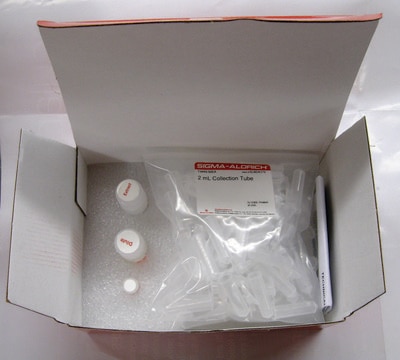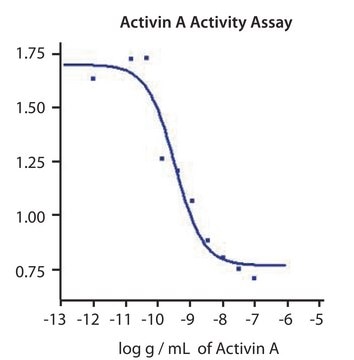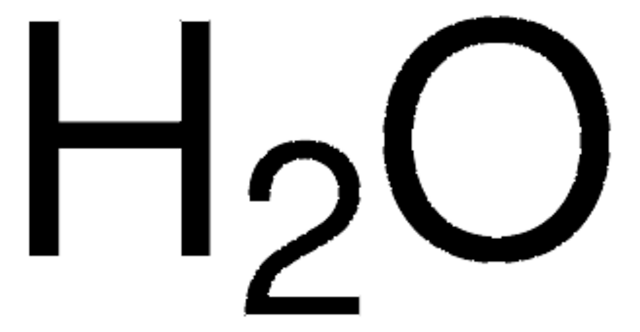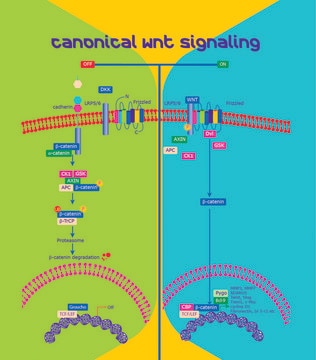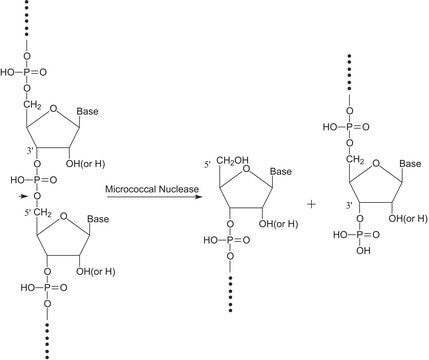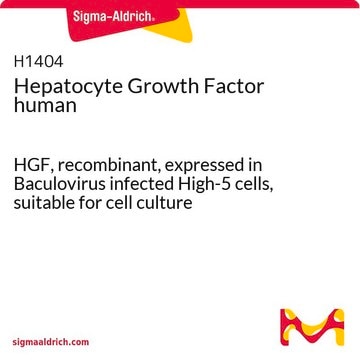14-837
NAP1 Protein, active, 300 µg
Active N-terminal His6-tagged Drosophila NAP1 expressed in E. coli.
Sign Into View Organizational & Contract Pricing
All Photos(1)
About This Item
UNSPSC Code:
12352202
eCl@ss:
32160405
NACRES:
NA.32
Recommended Products
Quality Level
mol wt
Mw 43 kDa
manufacturer/tradename
Upstate®
UniProt accession no.
shipped in
dry ice
Gene Information
Drosophila ... NAP1(37798)
General description
N-terminal 6×His-tagged Drosophila NAP1 expressed in E. coli.
Nucleosome assembly proteins (NAP) are involved in moving histones into the nucleus, nucleosome assembly and chromatin fluidity. They affect the transcription of many genes.
Application
Lot # R0803D0002: 12.5 µg NAP1 has been successfully used for 1 chromatin assembly reaction with Chromatin Assembly Kit (Millipore Corp, Catalog# 17-410).
Quality
Activity is routinely tested with Chromatin Assembly Kit (Millipore Corp, Catalog# 17-410).
Physical form
10 mM K-HEPES pH 7.6, 10 mM KCl, 50 mM NaCl, 0.1 mM EDTA, 10%(v/v) glycerol, 0.01% NP-40, 0.2 mM PMSF, 1mM DTT. Frozen solution.
Format: Purified
Storage and Stability
Stable for 6 months at -80°C from date of shipment. For maximum recovery of product, centrifuge original vial prior to removing the cap.
Other Notes
Specific Activity: Varies with lot
Varies with individual lot. Lot R0803D0002 has purity 90% by SDS-PAGE and Coomassie blue staining
Legal Information
UPSTATE is a registered trademark of Merck KGaA, Darmstadt, Germany
wgk_germany
WGK 2
Certificates of Analysis (COA)
Search for Certificates of Analysis (COA) by entering the products Lot/Batch Number. Lot and Batch Numbers can be found on a product’s label following the words ‘Lot’ or ‘Batch’.
Already Own This Product?
Find documentation for the products that you have recently purchased in the Document Library.
Roberto Fabian et al.
Molecules (Basel, Switzerland), 26(16) (2021-08-28)
We report data from single molecule studies on the interaction between single DNA molecules and core histones using custom-designed horizontal magnetic tweezers. The DNA-core histone complexes were formed using λ-DNA tethers, core histones, and NAP1 and were exposed to forces
Our team of scientists has experience in all areas of research including Life Science, Material Science, Chemical Synthesis, Chromatography, Analytical and many others.
Contact Technical Service
